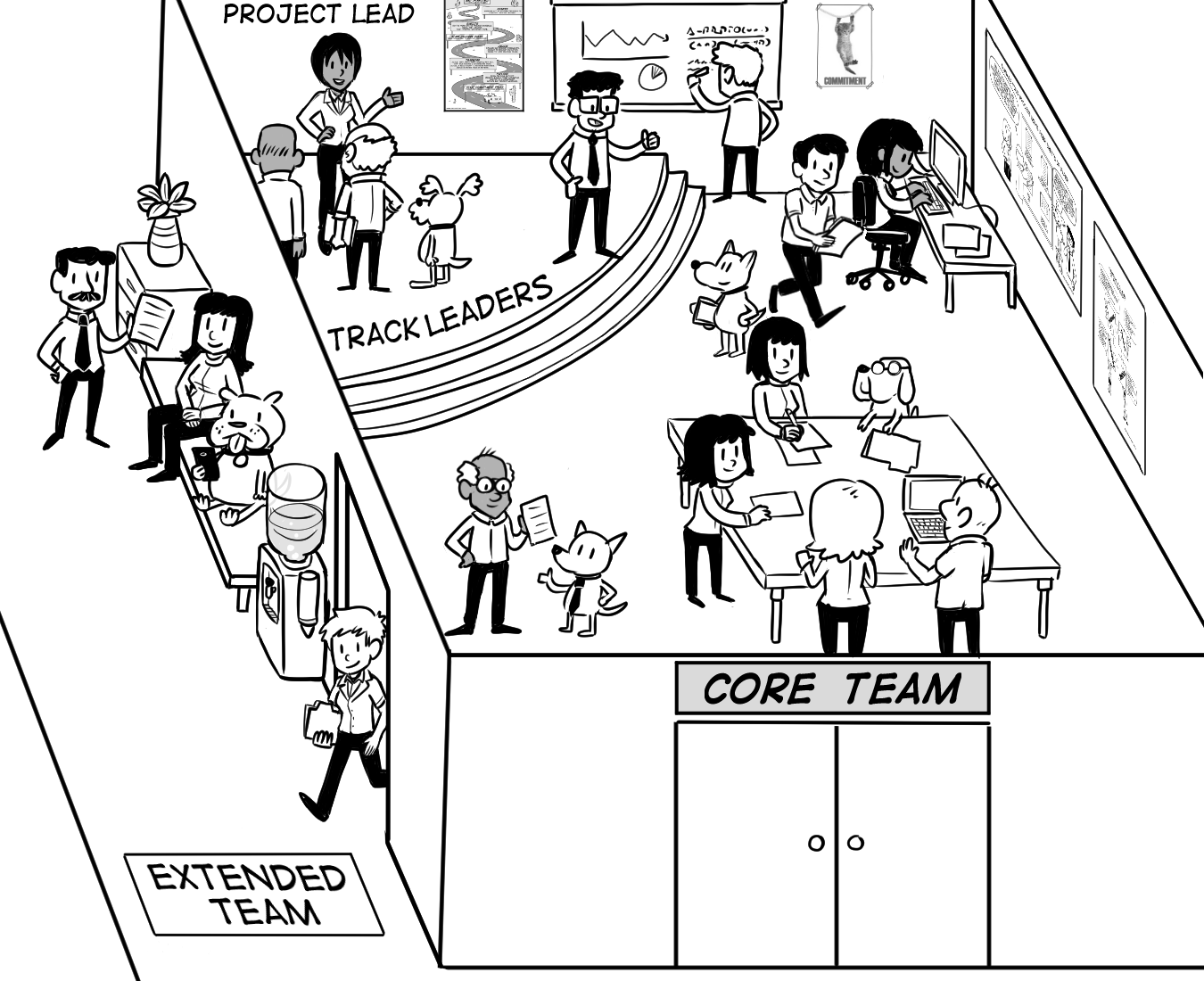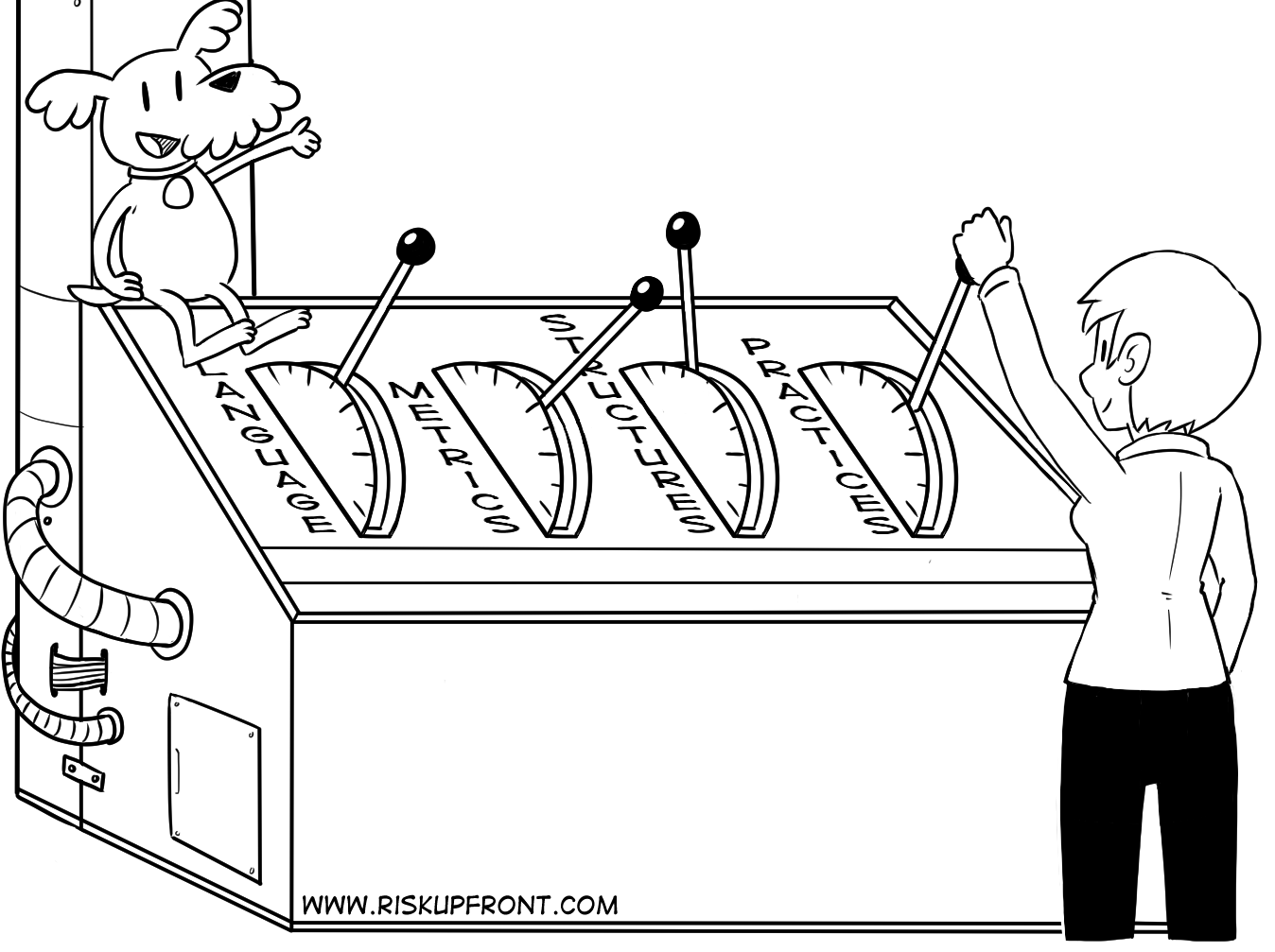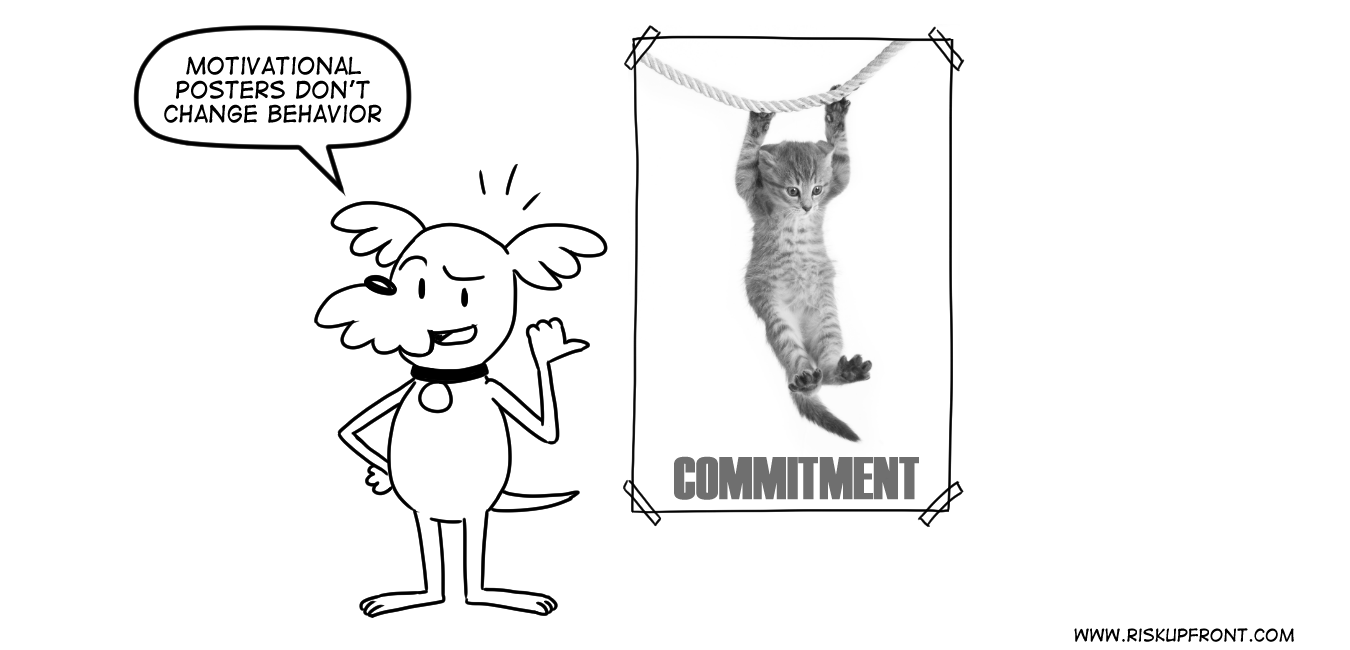At the core of risk upfront is the clarity and operationalization of four fundamental principles. They are accountability, transparency, integrity, and commitment. The order of these principles is intentional. When an individual gets the first indication that they will be the accountable owner to address or deliver a particular result, it will often drive them to get clarity on what they’re about to be held responsible for. Bringing this transparency to the front of the conversation is very much in the spirit of Risk Up Front.
RUF uses a short but clear definition of accountability: the singular ownership of a result. This means every task must have one designated owner. Not only is it essential for the owner to be clear that they are accountable, but it is also critical that the team around them understands that. It lets them know who they should talk to about a given issue, and if there is disagreement on who should be the single accountable owner, then it helps get that sorted out upfront rather than cause problems later on.
We insist the assignment of owners be complete—no unowned action items. Before writing down a team member’s name as owning an action item, that individual must agree to take responsibility for it. Do not assign an item to someone not in the room. Only an individual, not a functional group, can accept accountability. Assign accountability to people by name, not by their job titles. The process of asking for consent when assigning ownership and handling the resulting yes or no is essential to any meeting.
Ownership Is a Causal Role
Just because you are accountable for a result does not necessarily imply that you will do any of the work (although you might). You’re accountable for causing it. For example, if you can’t do it, you’re on the hook to find someone who can. If you are on the hook to solve a problem that requires a meeting, you will schedule a meeting where people come together to solve the problem.
Moving Beyond “Project Democracy”
RUF cautions against decision-making by consensus or “project democracy,” often a sign of reluctance to assign individual accountability or trust in personal decision-making. This approach can hinder progress and render projects unmanageable. We believe strongly that a critical aspect of leadership is that leaders have followers. Involving the right people in the decision-making process is vital, although everyone in that conversation is clear on who the final decision-maker is. If there could not be alignment behind this decision, that may be a valuable opportunity for escalation.
Trust in the accountable individual’s decision-making is crucial. If there’s doubt, it may indicate a mismatch in role assignment. While project leaders can set boundaries, the essence lies in empowering individuals to make informed decisions within their realm of accountability.
Accountability and continuous improvement
Perhaps counterintuitively, singular accountability fosters learning in an organization. When it’s clear where the buck stops in resolving an issue or delivering on a functional area, it is clearer where the successes and the failures occurred, not so there can be blame, but so we can more easily see what was missing and what needs to be learned.
In wrapping up, it’s evident that the principles of Risk Up Front (RUF)—accountability, transparency, integrity, and commitment—are more than just guidelines; they are the bedrock upon which successful outcomes are built. Singular accountability is not a mere assignment of tasks; it is the embodiment of ownership that drives clarity, action, and resolution. As we discard the inefficiencies of ‘project democracy’ and embrace the decisiveness of individual ownership, we foster an environment where each member is empowered to lead within their scope. This empowerment catalyzes tangible results, ensuring decisions are made with conviction and purpose. When we hold ourselves and others to this standard, we create a dynamic where learning and improvement are continuous, and excellence is not just aspired to but achieved. The accurate measure of success in any organization is the ability to generate results consistently—and at the heart of this capability is the principle of accountability, which RUF captures and champions with unwavering focus.



